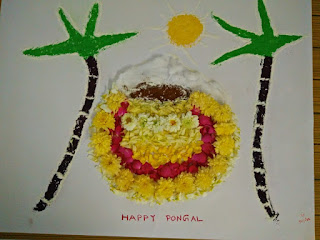Mitr is a support center that arranges programs regularly for special needs parents in Chennai.
Tuesday, March 9, 2021
Phone a Friend
Online Kolam Contest for Pongal 2021
Friday, December 25, 2020
2020- the year when we learnt to ZOOM!
Corona really pinched our support group works very hard, restricting us until October, 2020 to just messages in our telegram group. We helped many new parents who had recently discovered the special needs in their wards.
But in October we got our act together with an online program for Navratri, for which we arranged three interviews of vendors all of whom were part of the Special Needs community. We ran a Fb page and campaign called Mottamadi Thamboolam, for the sale of Golu gifts.
Several special needs vendors made a decent sale, through this endeavor.
Then we had a composite program in which we showcased our children's talents, had a fashion show and an Antakshari all in the same evening. The video is on youtube in the link below-
We ended the four hours program with an Antakshari, which can be viewed here-
Then we arranged a program on Diwali in which we showcased a video made by Aparna and her daughter Suvarna on Diwali. Then we presented the new things the mothers did during quarantine time, then a zoom presentation of a dance program from Anubhava School of Meera Krishnamurthy, a Scan Mom, followed by a quiz by another Scan Mom Seetha Vikas,
The whole program can be viewed here-
Then Gopinath Ramakrishnan, FounderTrustee of Scan, did a program on Inclusive Living, a project he has been working on for a year or so. You can view that here-
Our last set of programs for 2020 was SCAN Conversations- lead by Suja Shyamsunder, on different topics. A new initiative by Suja, a parent from Chennai with a 13 years old son with autism, steers a conversation about discoveries made during corona time, changes in the children's lives and 'Wow' moments of resplendent joy, with Sonal, Devaki, Chitra, Deepa, Jayanthi, Sumathi and Vimal.
Please view it here-
The second in the series of SCAN Conversations was on 'High Functioning or Low Functioning" with regards to special needs of any type, as a topic. What it means in the context of the children, whether it is useful to define it as such etc. The discussion was between mothers of different disorders such as Fragile- x Syndrome, Sturge Webber Syndrome, Autism and Phelan- Mcdermid Syndrome.
It can be viewed here-
Thus ends 2020, Corona put us down, but we raised the ante and got back to business albeit only online!
Tuesday, September 24, 2019
Mental Health Programs
Bindu Haridas has been doing a program called 'Self Discovery' which is loosely based on Louise Hay's 'Mirror Work' plus Beena's own discoveries in healing.
Beena Prithviraj has been doing 'Open Up' -Conversations in Mental Health, with small groups of people.
Both programs are ongoing.
Tuesday, August 13, 2019
Workshop By Lalitha Sridhar
- Senses help in performing our ADLs.
- For any development or learning to happen SI has to happen.
- All senses have to work together for complete information.
- There three types of senses-
- Exterior- such as visual, olfactory, auditory and tactile
- Interior- Receptors in our body that tell us information for eg- are we hungry or full, do we need to go to the toilet, is our bladder full and so on.
- Proprioceptive-information that our joints and muscles give us and Vestibular- information connected to balance and stability.
- Proprioceptive sense can be further elaborated as-
- Maintaining alignment of body parts- for eg to pick p a fallen object we need or eyes, head, arms and back to work together in alignment. If we cannot control this alignment we cannot pick up the object. This sense is proprioceptive.
- Control of movement- for eg in picking up this fallen object we need to control how far our arm moves.
- Precision
- State of Alertness.
- In short, Proprioceptive deals with how much control and sense we have of our joints and muscles.
- Vestibular sense can be further elaborated as-
- Emotional Security via gravity- feeling like one is floating. Some children jump a lot, perhaps this helps them overcome this 'floating' feeling.
- Feeling of Unsteadiness.
- Fear of Falling, lack of control.
- Balance and protective reaction.
- Stable Visual fields.
- Understanding space.
- In short Vestibular deals with how we perceive ourselves in space.
- Motor
- Sensory
- Emotional



















